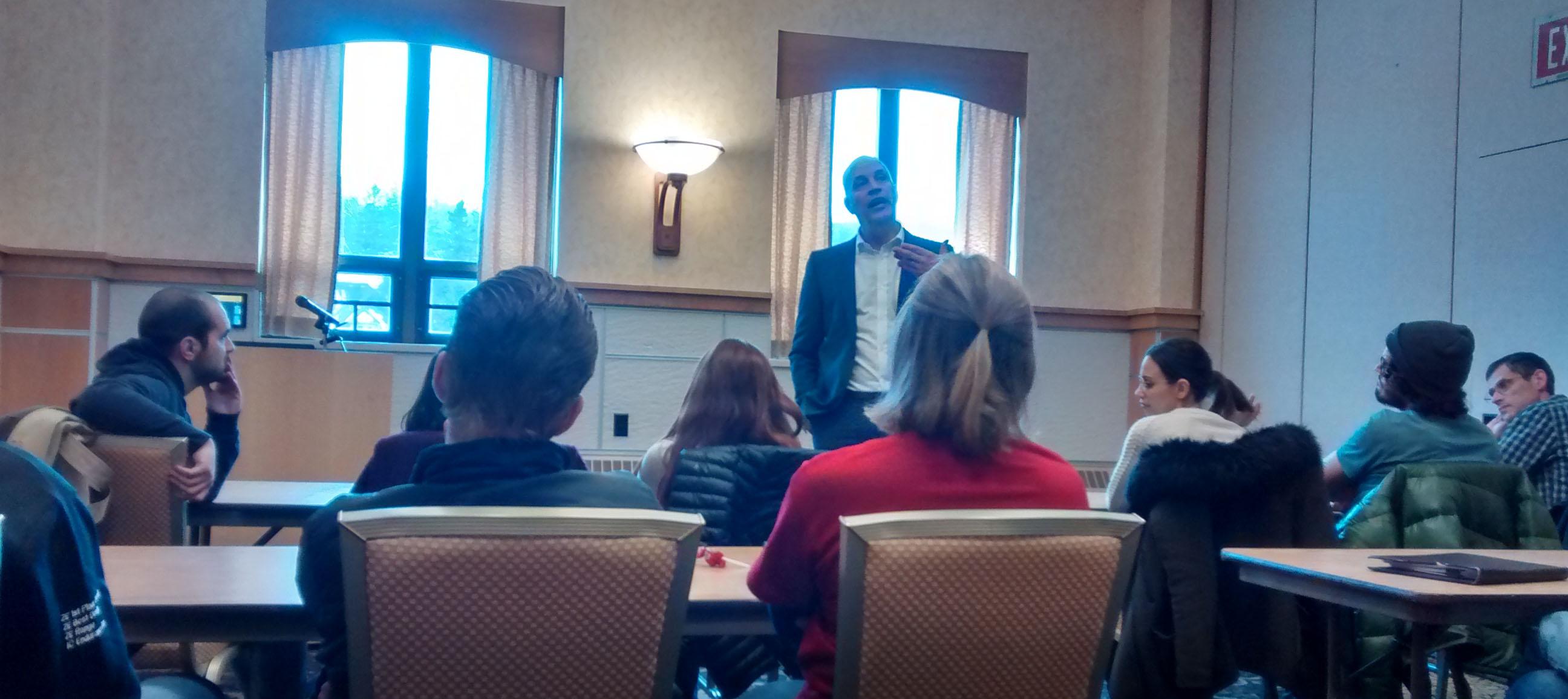From 4 p.m. to 5 p.m. on Wednesday, Nov. 1, engineering students and
faculty, students from the department of humanities, members of university communications and other members of the university community gathered in the Memorial Union Building Ballroom B1 to listen to Dr. Scott Marratto’s presentation on “Morality and Technology: Rethinking Engineering Ethics.” The presentation was part of the HuskyLEAD-Strength workshop series and Marratto’s presentation concluded the Fall 2017 series of presentations.
In his presentation, Marratto suggested “traditional approaches to engineering ethics stress the application of professional codes of ethics to real-world problems,” and contended that many ethicists and philosophers of technology in the recent past have “raised critical questions about
this approach.” Using the examination of real and hypothetical incidents such as the space shuttle Challenger accident, Marratto offered an alternative approach to engaging engineering ethics. Following some philosophers of science, the speaker argued that ethics should be more integrated into the education of engineers and designers.
Marratto reiterated that attention must be paid to moral action where humans behave as “free beings because of the common good rather than because of legal consequences.” Marratto admonished participants to consider morality in relating with technologies since “technologies are not mere tools in our lives” but are “solicitations to be engaged with in some kinds of ways.” In teaching and thinking about technologies, therefore, we must also think about how this relation affects our larger environments and human realities.
Responding to an audience member who wanted to know what engineers could do differently in designing, Marratto said engineering should be practiced as a “part of our democratic culture.” Focus groups and public forums can be “consultative ways” that can guide decision-making. Engineering should not just be about “cost-benefit analyses but also about cultural and ethical analyses,” Marratto concluded.
Marratto holds a doctorate in philosophy from the University of Guelph and is an associate professor of philosophy in the department of humanities. He is also the director of the department’s graduate program. Currently, he is the president of the Canadian Society for Continental Philosophy. He is also a coauthor of the 2008 McGill-Queens University Press book “The End of Ethics in a Technological Society” and the author of “Intercorporeal Self: Merleau-Ponty
on Subjectivity” in which he talks about how the French philosopher Maurice Merleau-Ponty contributed to current discussions of subjectivity, embodiment, language, and our relations with others.


